The practice of becoming a doula is part of a long-standing tradition of New Mom Support and Doula Support. At its heart lies the question that many aspiring doulas ponder, “Can I be a doula even if I’ve never experienced childbirth myself?”
The answer is unequivocally yes. Although some may associate doula work with firsthand experiences of motherhood, your ability to empathize, educate, and guide new mothers is not confined by personal childbirth experiences. This profession is rooted in providing emotional, physical, and informational support to new mothers—a skill set that is acquired through training, practice, and a natural sense of empathy.
Whether you’re drawn to this profession as a passionate advocate for maternal care or out of an intrinsic desire to support new families, this article will explore how becoming a doula is open to all individuals, regardless of their personal childbirth stories.
What Is a Doula and What Do They Do?
To fully grasp this topic, it’s essential to first establish what a doula is and their role in maternal support.
A doula, historically and in modern contexts, is a trained professional who provides essential support to mothers before, during, and after childbirth. The term “doula” itself traces back to ancient Greece, signifying a woman of service. Over time, the role evolved into a specialized function addressing the emotional and physical challenges of childbirth.
Although doulas are not medical professionals like midwives or obstetricians, their contributions lean heavily into emotional encouragement, offering comfort measures like breathing techniques, labor positions, and communicating the mother’s preferences to medical staff. This level of support often extends into postpartum care, ensuring both the mother and infant receive the care they deserve.
The Myth of “Motherhood First”
One common misconception, particularly in Doula Support communities, is the notion that firsthand experience of childbirth is a prerequisite for the profession. This ideology may stem from well-meaning but narrowly defined views of maternal empathy. The underlying assumption is that one’s ability to provide support hinges on personal familiarity with pregnancy and delivery.
However, such beliefs fail to recognize the rigorous, specialized training required to become a doula. Many doulas undergo certification programs and immerse themselves in extensive birth knowledge, outcome-based practices, and sensitive communication techniques to ensure they are equipped to handle various scenarios.
Personal childbirth experience does not substitute for professional preparation. It’s worth noting that many highly respected doulas work effectively without having borne children themselves. Their academic grasp of pregnancy and birth, coupled with empathy and human connection, becomes sufficient for excelling in this field.
Why Your Personal Birth History Isn’t the Defining Factor
There are several key reasons why childbirth experience isn’t required—nor is it a litmus test—for aspiring doulas.
1. Professional Training Is Universal
All aspiring doulas are required to undergo thorough training, often involving classroom instruction, peer mentorship, and hands-on observations of childbirth. Organizations providing courses and certification specialize in areas from anatomy and physiology to labor support.
For instance, Northeast Doulas offers classes designed for all aspiring doulas, irrespective of their prior experience with childbirth. Their programs emphasize skill-building, communication, and maintaining a supportive demeanor during crises.
2. The Role Is About Service, Not Self-Reference
The role of a doula focuses on the family’s needs, not the doula’s personal experiences. Being present, listening attentively, and creating an environment where the mother feels empowered are at the core of New Mom Support services.
Having experienced childbirth may provide insight, but empathy and supportive techniques are developed far beyond the bounds of one’s own circumstances. The best doulas thrive because they listen, adapt, and respond effectively to different needs rather than relying on anecdotal encounters.
3. Empathy and Emotional Intelligence Matter More
Human connection and emotional intelligence lie at the foundation of any great doula. The ability to anticipate a mother’s comfort requirements or calmly provide reassurance during crucial moments matters significantly more than lived birthing experience. Understanding body language, addressing anxiety, or simply offering meaningful encouragement supersede any personal history.
The Steps to Becoming a Doula
For those inspired by providing Doula Support, the pathway to joining this profession involves formal education, continual development, and a commitment to compassionate care.
1. Research Accredited Doula Training Programs
Choose an organization that aligns with your learning style and values, such as DONA International, CAPPA, or specialized institutions like Northeast Doulas in the Greenwich, Westchester, and New York City area. These programs often include theoretical and practical components designed to provide a roadmap for success.
2. Complete Doula Certification
Achieving certification through structured programs is a vital step. Certification equips students with the knowledge and confidence to support families in a professional capacity while teaching the importance of advocacy, cultural sensitivity, and customized care.
3. Gain Hands-On Experience
Shadowing experienced doulas or attending live births (if permitted) serves as essential exposure for any new doula. Observing different birth scenarios prepares professionals for the unexpected dynamics of live childbirth.
4. Network Within Doula Communities
Building connections with established professionals allows aspiring doulas to learn from seasoned mentors. Doula communities often share valuable best practices, tips on client relationships, and recommendations for service improvement.
5. Prioritize Continued Education
Childbirth trends evolve continuously, necessitating ongoing education. Whether it involves additional certifications, workshops, or learning about newer techniques like hypnobirthing, commitment to self-improvement helps doulas deliver optimal support.
Debunking More Myths About Doulas
Several misconceptions surrounding doulas—beyond the question of childbirth—deserve clarification to highlight the inclusive and multifaceted nature of this role.
- Myth: Doulas are only for first-time mothers.
- Fact: Doulas provide support for all moms, regardless of whether it’s their first baby or their fifth.
- Myth: Doulas are the same as midwives.
- Fact: While both are birth professionals, doulas focus on emotional and physical support, while midwives are medical professionals responsible for delivery.
- Myth: Doulas have to be women.
- Fact: Though often female, doula work is open to all genders. What matters is the capacity to connect meaningfully with the families served.
Creating Supportive Communities Through Doula Work
The decision to become a doula is not only a matter of career choice, but it’s also an impactful commitment to helping new families flourish across their postpartum journeys. Whether through new mom support, doula support, or postpartum care, doulas play an integral role in a mother’s ability to thrive during her earliest days of parenthood.
For those ready to explore the world of becoming a doula—or benefiting from one’s expertise—Northeast Doulas offers comprehensive resources and support throughout Greenwich, Westchester, and the New York City region.
The question of whether you can pursue doula work without having experienced childbirth should no longer hold significance; because helping new mothers and advocating for their well-being transcends all individual circumstances. By stepping into this role with an open heart and prepared skills, you can provide families with invaluable support.

